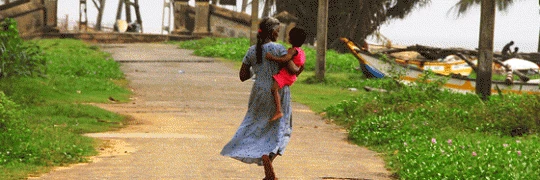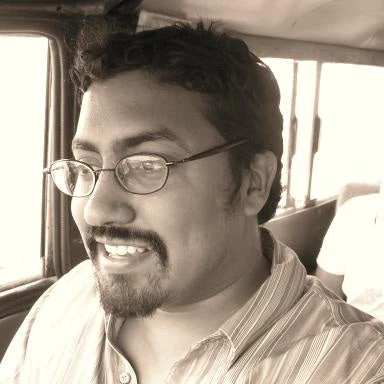Major crises like wars and disasters affect the lives of millions of people around the world. Sri Lanka itself has experienced the devastating consequences of a brutal 30-year war, violent insurrection and the 2004 Indian Ocean tsunami. Whilst mental health and psychosocial services have evolved to help survivors of these crises to cope with and recover from these impacts, it has often been a challenge to providing effective support at the scale required and in a timely manner.
For some affected people, the mental health and psychosocial consequences can be serious and long-lasting. However, for others, access to appropriate material and social support can bolster their ability to cope with the losses and hardships created by disaster and conflict. Given the limited specialized human resources available for mental health and psychosocial support in low and middle-income settings around the world – including in Sri Lanka – it is vital to develop approaches that can strengthen families’ and communities’ own capacity for resilience in the face of adversity.
In 2011, the World Health Organisation (WHO) and its partners published the “Psychological First Aid: Field Guide,” an implementation guide for an evidence-supported frontline intervention that is aimed at meeting this need. The WHO model of PFA - developed with low and middle income countries in mind - is a series of practical, humane, culturally adaptable actions that any lay person can do to support people who are distressed or vulnerable after a crisis. Provision of PFA does not depend on the arrival of mental health professionals or emergency services, who may be few in number or late on the scene, but can be provided by neighbours, co-workers or any other person who is at a crisis site. It is now a key recommended first line response in the immediate aftermath of a crisis, and has been used extensively in recent major disasters in Japan and the Philippines.
As we approach the 10-year anniversary of the 2004 tsunami disaster, Psychological First Aid seems especially relevant for Sri Lanka. In response to the suffering caused by the tsunami, many well-meaning individuals and groups rushed to provide support to the affected coastal communities. Unfortunately, in the scramble to respond, the interventions by local and international responders were not always informed by either research or best practice knowledge from Sri Lanka or globally. As an approach that seeks to ‘do-no-harm’ whilst promoting contextually-relevant actions informed by evidence-based principles, PFA appears to be a strong approach that should be deployed as a first-line response in the event of future crisis events in Sri Lanka.
Over the past two years, The Good Practice Group, War Trauma Foundation and World Vision have adapted and translated the WHO field guide on PFA into Sinhala and Tamil for use in Sri Lanka. Through piloting of this material with a wide range of potential responders - including rural villagers, community workers, manufacturing industry workers, disaster first responders, corporate executives and mental health professionals - the content was found to be highly applicable to diverse contexts in Sri Lanka. In 2013, the Sinhala and Tamil translations of the PFA field guide were published and are now available for use.
Policy-makers in the fields of health, social services and disaster management in Sri Lanka would benefit greatly from engaging with the potential of PFA to enhance the capacity of service providers and community members across the island to respond confidently and appropriately to support the survivors of future large and small-scale crisis events should they arise.
On the 11th of April 2014, there will be a distance learning orientation session on PFA delivered by a lead author of the WHO field guide Dr. Leslie Snider via video conference for Sri Lanka, Mongolia, Philippines and Timor Leste. This is one of a series of regional sessions organized jointly by the World Bank Tokyo Development Learning Centre, United Nations University – International Institute for Global Health, and the National Institute of Mental Health in Japan, in close partnership with WHO.
http://www.dlcsrilanka.org
For information on attending the PFA orientation sessions via video conference from Colombo, please contact Mr. Chanuka Wattegama of the Distance Learning Centre Sri Lanka via telephone (+94-11-2554947, +94-72-9632475) or email (chanuka@gmail.com).
For more information on PFA, visit the WHO website or the PFA Training and Adaption group on the MHPSS Network.
Photo by Chulie de Silva



Join the Conversation